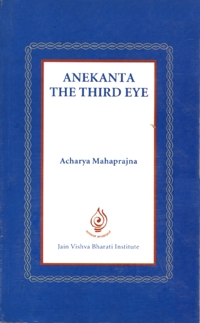
Syadvad has presented an expansive viewpoint. Through this many possibilities in knowledge, science and human personality are dancing on the wedge of existence. Nothing can be rejected. We find new discoveries everyday. The follower of anekanta should not be surprised. He knows that one and many go hand in hand. Truth and untruth go hand in hand. One mode is in existence and the other not in existence. What is in existence today may not be so tomorrow and what is not in existence today may be in existence tomorrow. In day-to-day life, when one man comes to power, another goes. The second comes into power; the first goes out of power. This is the order in the world of existence. Who thought that a member of the plant world would get moksha (nirvana)? Who thought undeveloped creatures with unmanifested intelligence would become omniscient (kevali)? This happened to Adi Tirthankar Rishab’s mother Marudeva. If we go only by appearances and what meets the eye in the present, then we can never imagine such a possibility. All this happens due to the unmanifested modes.
It is definite that both existence and non-existence are of the self. The existence of kaivallya (or the person with complete knowledge) is of the self and the non-existence of kaivallya is also of the self. The existence of strength is of the self and its nonexistence is also of the self. The existence and non-existence of bliss is also of the self. Both these situations should be estimated relatively. We should know the limits of both. It is very important to understand the limits.
The limit to oneself is experience. The limit to others is excessive thoughts. Man lives with thoughts, lives through others and lives through interaction till his experiences and his reflections on them, awaken. When he lives with his experiences, then he moves into the limits of the self.
 Acharya Mahaprajna
Acharya Mahaprajna
